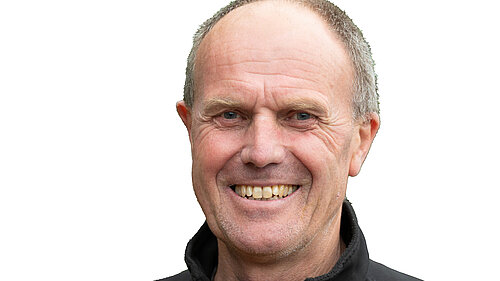From the chamber: Decarbonising transport

In July 2021 the government published its Transport Decarbonisation Plan (TDP) which sets out what needs to be done to achieve net zero emissions across all modes of transport by 2050.
Transport is how we all get around from place to place, which influences our towns, villages and the countryside where we spend our time and therefore impacts on our health and wellbeing and quality of life.
2019 government data indicates that cars and taxis cause 55% of all domestic transport greenhouse gas emissions. The TDP goals include supporting public transport, cycling and walking, accelerating the shift to zero emission cars, vans and trucks, and reducing carbon-intensive travel demand such as aviation. This aims to stop the harm caused by burning fossil fuels that are poisoning the air that we breathe and changing our planet’s climate.
The transport sector in the UK contributes more greenhouse gas emissions than any other sector and a surprising amount of this comes from local travel. Over half of car trips are less than 5 miles. 43% of all urban journeys are below 2 miles. By making it easier and safer to walk, wheel or cycle short journeys people have the opportunity to do so without using fossil fuels. Change is often difficult, but the TDP is clear that “mode shift to active transport is one of the most cost-effective ways of reducing transport emissions”. The increasing popularity of electric bikes only increases the potential of this. The benefits of this include improved health and well-being for our residents, lower cost of travel saving money, reduced congestion, air pollution and noise and a more reliable and affordable transport system for everyone.
By doing this, we create capacity on our road network for those who need to drive, especially buses, coaches and the transportation of goods. Government forecasts are that, without action, car use will grow by up to 41% by 2050, a level which is simply unsustainable in terms of road capacity, let alone the environment.
Government guidance to local authorities expects a plan for mode shift, and this will form a part of our new Local Transport Plan (LTP).
Wokingham’s new LTP will include a Low Emission Transport strategy, Electric Vehicle Strategy, our revised Bus Service Improvement Plan and the Local Cycle Walking and Infrastructure Plan.
We are in a Climate Emergency, and we need to progress schemes as quickly as possible. The collective impact of underfunding from central government, the removal of previously promised funding for active travel and the impact of inflation means there is little new money available. However, we are working with partners and constantly seeking external funding to enable transport decarbonation to become a reality.
Recently, the Thames Valley Park & Ride has seen a successful shuttle bus launch in partnership with Royal Berkshire Hospital to take staff, patients and visitors from the site to the hospital. Also, the Heathrow airport RailAir coach now calls at the park and ride site.
We have been successful in bidding for funding for 38 additional electric vehicle charging points, on top of the 94 already funded, that are being installed during the summer in residential areas and car parks, and further external funding bids have been submitted.
Following approval of our Local Cycling and Walking Infrastructure Plan in 2022, we were awarded £606,000 to design and consult on an active travel route between Winnersh and Wokingham town centre. We intend to consult with residents on the first phase of this in early Autumn 2023.
Our supported bus network has been secured for the next 3 years with an additional injection of funding of over £350,000 per annum. This will provide surety for residents and businesses who rely on public transport and reduce the need for private car journeys.
We are pursuing a progressive agenda that will reduce congestion, clean up our air, reduce CO2 emissions and help people adopt a healthier lifestyle, getting Wokingham ready for the future.
Councillor Paul Fishwick, Executive member for Active Travel, Transport and Highways.
